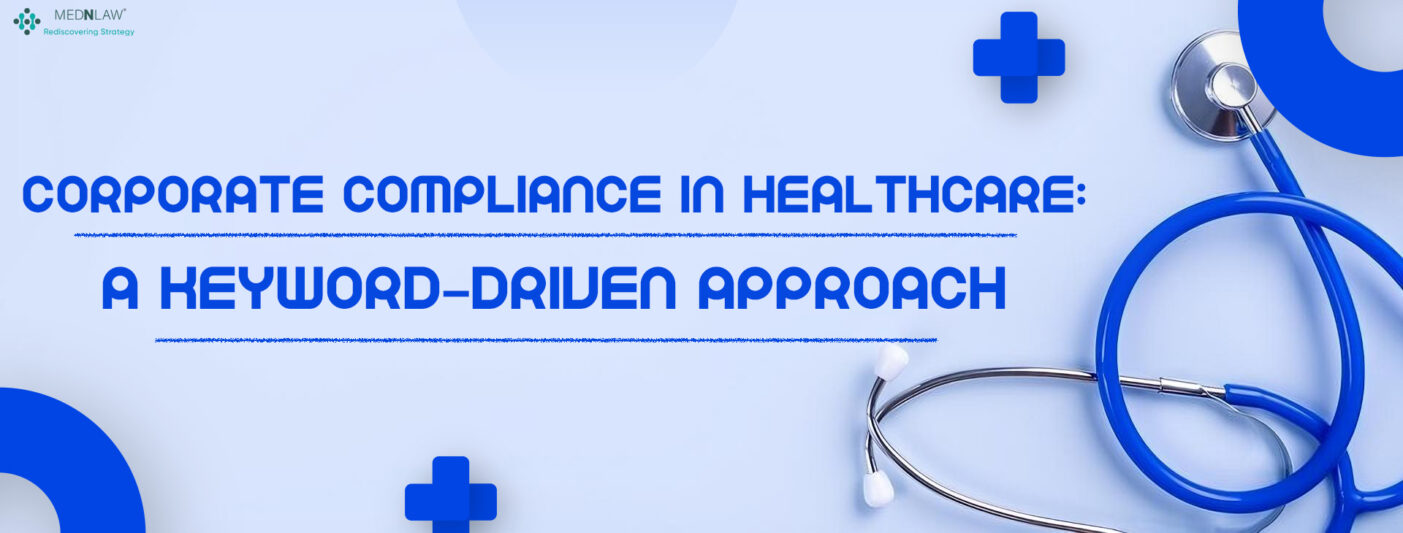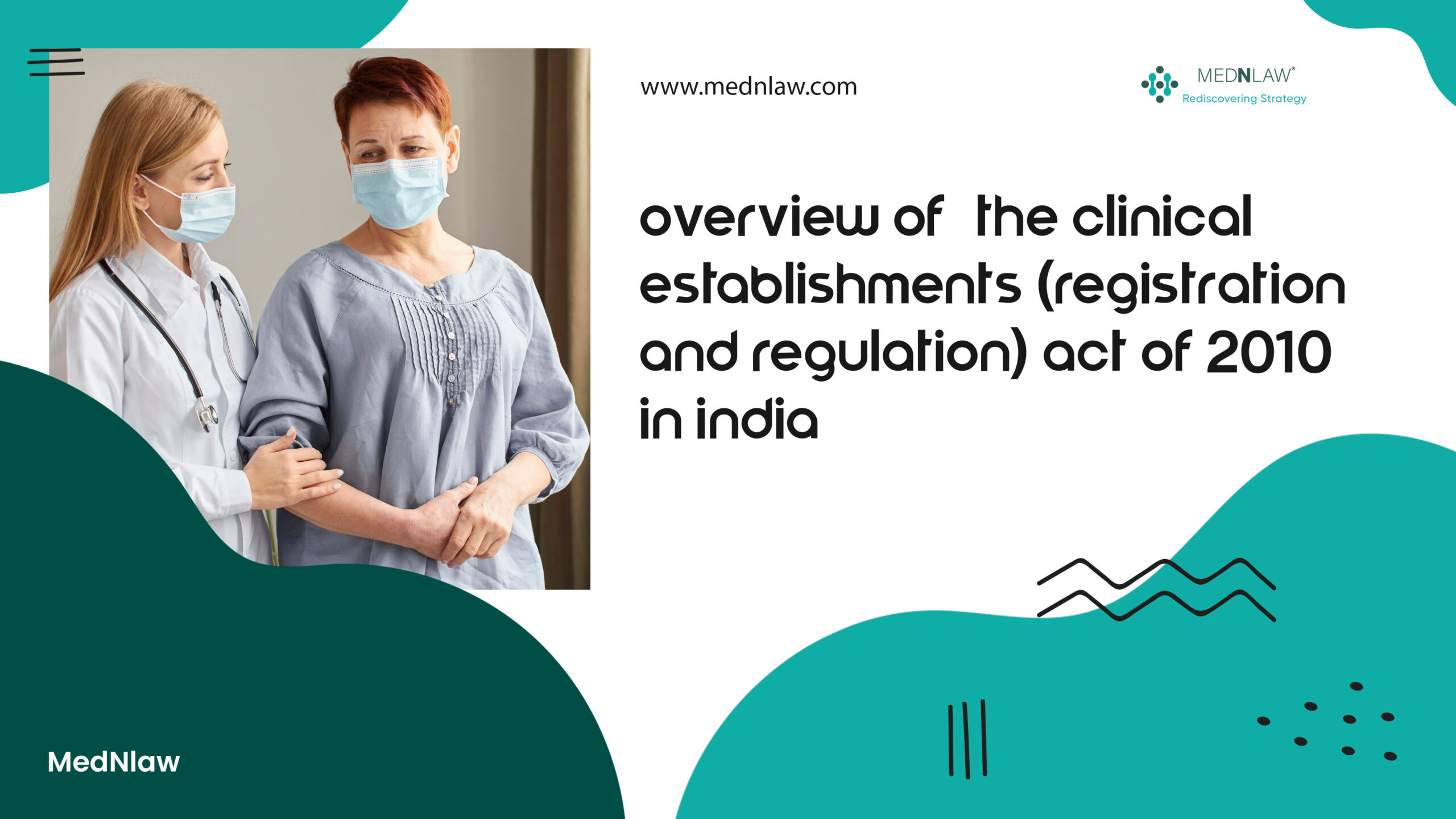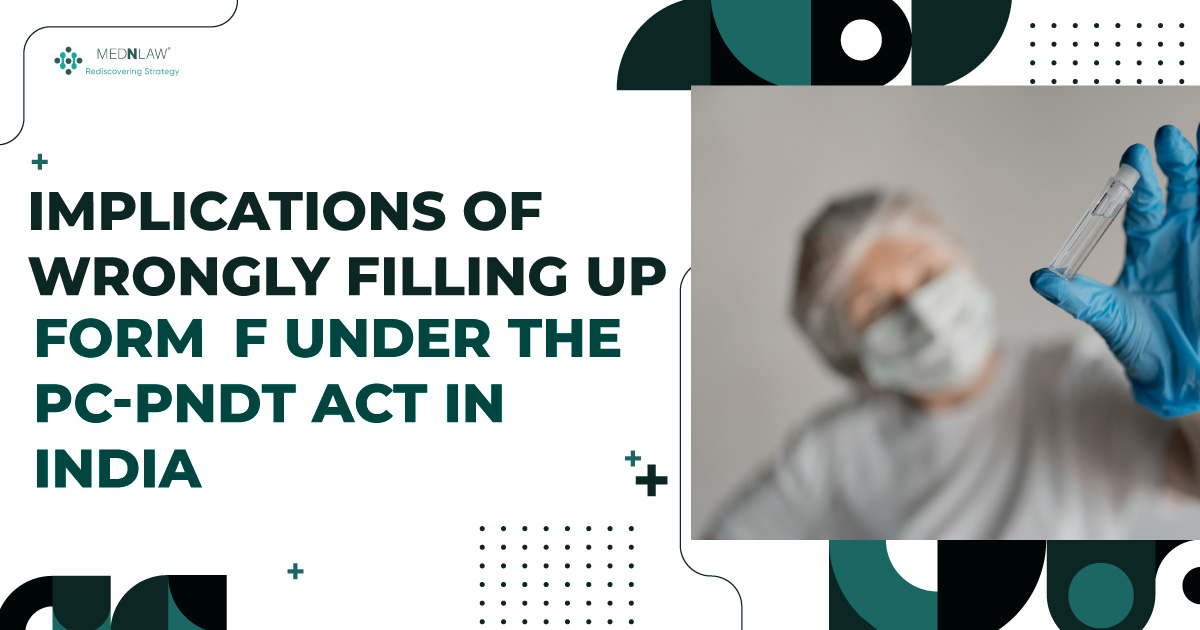
Corporate compliance has become essential for enterprises in the ever-changing healthcare sector. It is important to respect the norms and laws that guarantee moral behaviour, openness, and the delivery of high-quality services.
This article typically provides an in-depth examination of the necessity of corporate compliance in the healthcare sector and an overview of the primary legislation controlling compliance in the Indian healthcare business.

A Comprehensive Guide to Corporate Compliance in Healthcare
In the healthcare business, compliance can refer to a wide range of operations that adhere to internal and external regulations. Most healthcare compliance issues, on the other hand, are related to billing procedures, patient privacy, and patient safety. Corporate compliance in healthcare is essential as it helps the healthcare facility to run smoothly.
In the healthcare sector, “compliance” refers to practices that adhere to internal and external regulations. The majority of healthcare compliance issues, however, relate to patient safety, patient privacy, and billing practices.
Furthermore, Corporate compliance in healthcare is indispensable to the effective operation of a medical organisation. In the healthcare industry, compliance guarantees that the proper procedures are followed and the operations go smoothly. In contrast to other industries, the stakes for corporate compliance in the healthcare sector are substantially higher.
Compliance ensures that the proper procedures are followed and operations operate smoothly in healthcare. However, the healthcare sector’s compliance stakes are substantially higher than in other industries.
Challenges in Corporate Compliance in Healthcare
- Evolving Regulations:Healthcare regulations change frequently, requiring medical organisations to stay updated. Thus, to implement new policies successfully, monitoring changes to keep up with constant demands and legal expertise is necessary.
- Complexity of Healthcare Systems:The large networks and diverse functions make managing compliance challenging. Many other factors, like the alliance of different systems and services, further complicate implementing compliance measures.
- Resource Constraints:Smaller organisations may lack the resources for extensive compliance programs. Further, the risk of violations increases with insufficient monitoring, training, and enforcement of compliance standards.
- Technological Vulnerabilities:The increasing reliance on digital systems heightens the risks of data breaches and cyberattacks. With sensitive information stored digitally, protecting data with strong security regulations becomes essential.
- Employee Resistance:Employees’ resistance to change and lack of awareness can hinder compliance efforts. They may misunderstand or neglect the importance of compliance policies, which can accidentally lead to non-compliance.
- Global Operations:It is crucial for multinational healthcare entities to navigate varying laws and standards across jurisdictions.
Key Elements of Corporate Compliance in Healthcare
- Written Policies and Procedures-The organisation must develop policies that adhere to corporate compliance with healthcare regulations. The policies should also cover patient rights, data security, billing, and conflict of interest.
- Compliance Officers and Committees-It is essential to hire a compliance officer who will ensure accountability. The compliance committees should also assess the program’s effectiveness and address potential violations.
- Training and Education-Regular training programs for healthcare professionals will help them understand the laws and ethical obligations better. The training includes patient confidentiality, fraud prevention, and moral decision-making.
- Monitoring and Auditing-The periodic reviews help detect and prevent any sort of non-compliance. Further, the internal and external audits evaluate and adhere to the legal and regulatory standards.
- Reporting Mechanism-Establishing anonymous reporting systems to encourage employees to report violations without fear of retaliation is very important.
- Enforcement and Discipline-Consistently enforcing compliance policies discourages misconduct. Further, disciplinary actions must be fair and proportional to the violation.
- Response and Prevention-The healthcare organisation must address compliance issues promptly so that corrective actions and preventive measures can be taken to mitigate the risks.
Benefits of an Effective Corporate Compliance Program
There are several Benefits of Effective Corporate Compliance in Healthcare Programs. From reduced legal risks for medical negligence to enhanced patient trust to financial savings, an effective corporate compliance program helps a medical organisation run smoothly. An efficient compliance program also helps improve operational efficiency and create a positive work environment.
Importance of Corporate Compliance in Healthcare
Corporate compliance in healthcare is essential to maintaining the safety and quality of healthcare organisations. It is crucial for several reasons:
- Legal Obligation – It is important for healthcare communities to comply with the laws. Laws like the Health Insurance Portability and Accountability Act (HIPAA), the Anti-Kickback Statute, the False Claims Act, and other local and international regulations. Non-compliance can lead to criminal charges and heavy fines.
- Patient Safety and Quality Care – The compliance ensures that patients receive care that meets established safety and quality standards. It makes sure that rules are followed correctly, reducing any malpractices and various health risks.
- Financial Integrity – The compliance prevents fraudulent billing and financial mismanagement, ensuring proper use of funds. As healthcare institutions deal with large amounts of insurance payments and patient billing, it helps to make these transactions transparent.
- Reputation Management – Non-compliance can lead to lawsuits, fines, and further damage to an organisation’s reputation, leading to loss of trust among patients, legal actions and financial losses.
- Operational Efficiency—A strong compliance framework minimises risks and promotes efficient healthcare delivery. Streamlining operations will improve healthcare services, ensure best practices are followed, and provide high-quality care.
Conclusion
The efficient corporate compliance in healthcare programmes is critical for any medical organisation that wants to protect its patients, workers, and reputation while providing excellent treatment. Healthcare providers can maintain compliance with all applicable laws while offering exceptional care services by developing clear rules and procedures, regular auditing processes, improved risk management practices, and enhanced quality assurance techniques.
-
 Overview of the Clinical Establishments Act of 2010 in India11:01 am GMT+00:00•April 28, 2025Read more
Overview of the Clinical Establishments Act of 2010 in India11:01 am GMT+00:00•April 28, 2025Read more -

-

Here are some related articles you may find interesting
Copyright Mednlaw






